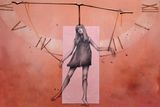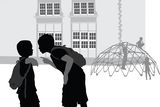Mind Matters - Getting our bodies back into rhythm
Patricia Casey
Christmas is over and by now we're back at work. Our New Year resolutions have already proven to be impossible and we are relieved to have a routine again.
Our indolent and slothful lifestyle during the long, long break has left us feeling sluggish. Why is it that days of simply relaxing, eating, drinking and socialising with those we love, free from the demands of work, leave us feeling in need of a detox and a restorative cleansing? Why do we feel it's time to get back to work again?
The simple answer is that routine and structure is inbuilt in nature. From dawn until dusk, from the first day of spring until the last day of winter, there is a predictable pattern. So also with humans. The circadian rhythm is the 24-hour physiological cycle or clock that is present in all of us.
This means that certain activities of our body are programmed to vary over a 24-hour period and when this pattern is disturbed we feel unwell. It is these inbuilt circadian rhythms that cause people to feel more energetic early in the morning or drowsy in the afternoon.
Those who are kept awake during the night, such as the parents of babies, and people on night duties will often describe a dramatic dip in mood during those dark hours between 4 and 5am.
Insomniacs, who wake during sleep, will often be haunted by beliefs that the world is terrible, a place of sorrow and gloom, of fear and terror; yet this perspective shifts seismically during daylight hours to optimism and joy. The surge in the depressant hormone cortisol during this period is largely responsible. And this may explain why self-harm, such as cutting or overdosing, occurs most often during these dark hours.
Other bodily functions are also affected by circadian rhythms, including pain thresholds which are higher in the afternoon.
So, if you are considering having a tooth filled, you may need less pain relief if you visit your dentist in the afternoon.
Similarly if you want to exercise you will be able to do so with greater ease in the late morning or early afternoon.
On the other hand, deaths peak in the morning due to increases in clotting properties of blood at that time of day. Interestingly, it's not only humans that have such rhythms but also plants, animals and even bacteria and funghi.
It is tempting to try and change this internal clock to a longer one. If our routine could be determined by a 36-hour cycle we could potentially achieve much more, both personally and professionally. However, it seems that the programming of this clock is fairly rigidly set 24 hours instead of the 25 hours suggested by some experimental researchers in the last decade.
The timekeeping centre, the suprachiasmatic (soo-prah-ki-az-mat-ik) nucleus, is located in the base of our brain. It receives signals from other sources, known as "zeitgeberz" (zite-ga-berz) of which light, social contact and sleep are the most obvious.
The centre then transmits signals to other areas of the brain that control such functions as digestion, the immune system, alertness and hormone secretion. In this way it imposes physiological control over a range of bodily activities.
The strange thing about routine is that when we have to do it in our day-to-day lives, we hardly notice it. Devotees of ABBA will be aware of their most melancholy and eerie song The Day Before You Came. It charts the monotonous and meaningless routine of a woman before she met her lover, who presumably disturbs all of that:
"Must have left my house at eight, because I always do
My train, I'm certain, left the station just when it was due
I must have read the morning paper going into town
And having gotten through the editorial, no doubt I must have frowned
I must have made my desk around a quarter after nine
With letters to be read, and heaps of papers waiting to be signed
I must have gone to lunch at half past twelve or so
The usual place, the usual bunch………………
It's funny, but I had no sense of living without aim
The day before you came."
Yet, listening to the song it is clear that the narrator almost wishes her predictable existence hadn't been disrupted.
And that is how we react also - a little break from the humdrum is acceptable but ultimately we feel better physically and emotionally when our life is predictable.
At least that's what friends, colleagues and patients are telling me and that's what the physiology of the natural world also shows.
Or more prosaically as the Scottish saying declares "Old clothes and porridge"!
Join the Irish Independent WhatsApp channel
Stay up to date with all the latest news














